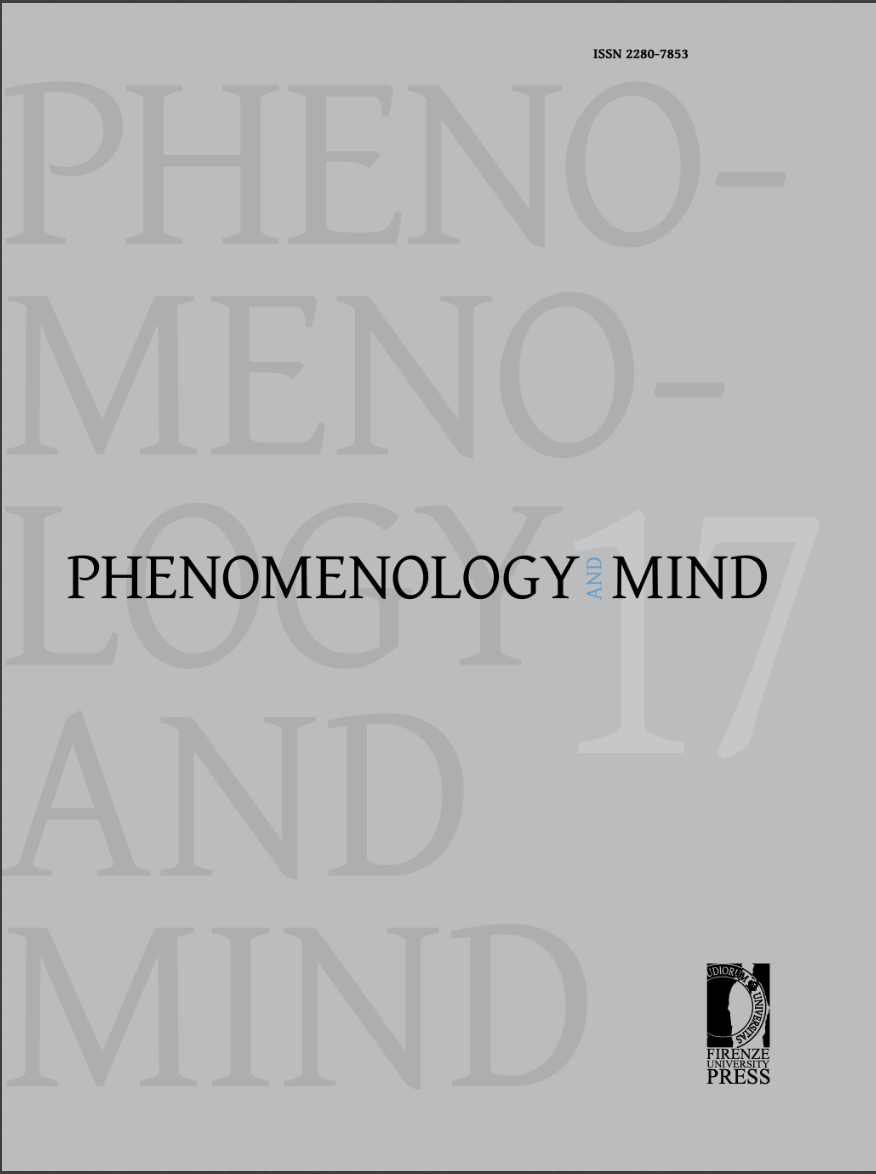Consciousness and Cognition
Published 2017-01-03
Keywords
- cognitive phenomenology,
- phenomenal character,
- cognitive access,
- co-extension
How to Cite
Jorba, M. (2017). The Conscious and Phenomenal Character of Thought: Reflections on Their Possible Dissociation. Phenomenology and Mind, (10), 44–56. https://doi.org/10.13128/Phe_Mi-20091
Abstract
In this paper I focus on what we can call “the obvious assumption” in the debate between defenders and deniers (of the reductionist sort) of cognitive phenomenology: conscious thought is phenomenal and phenomenal thought is conscious. This assumption can be refused if “conscious” and “phenomenal” are not co-extensive in the case of thought. I discuss some prominent ways to argue for their dissociation and I argue that we have reasons to resist such moves, and thus, that the “obvious assumption” can be transformed into a grounded claim one can explicitly believe and defend.

